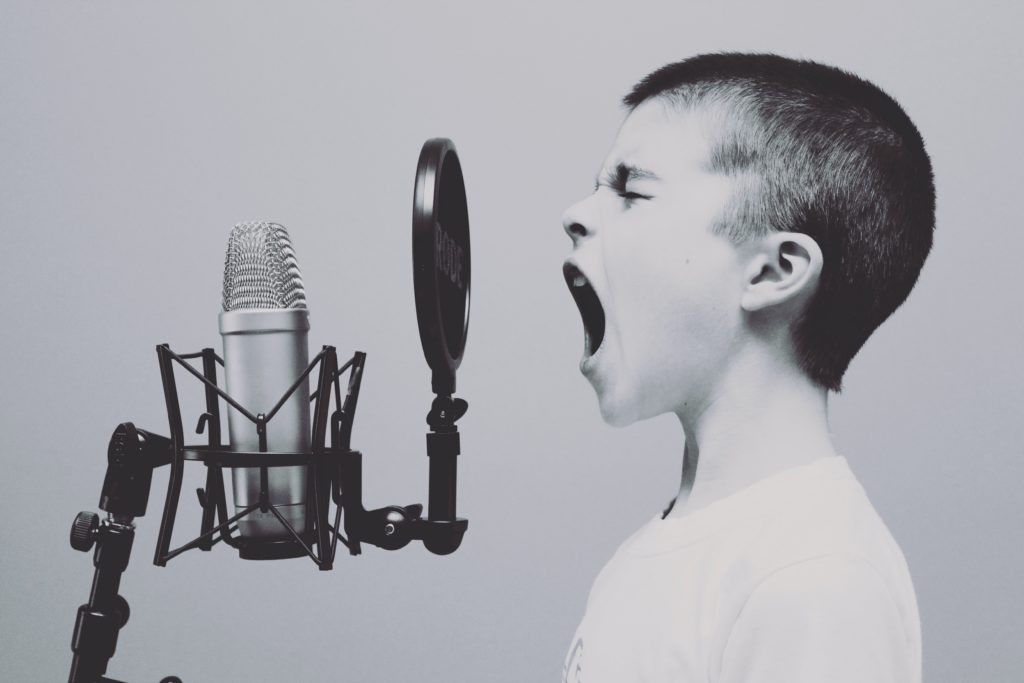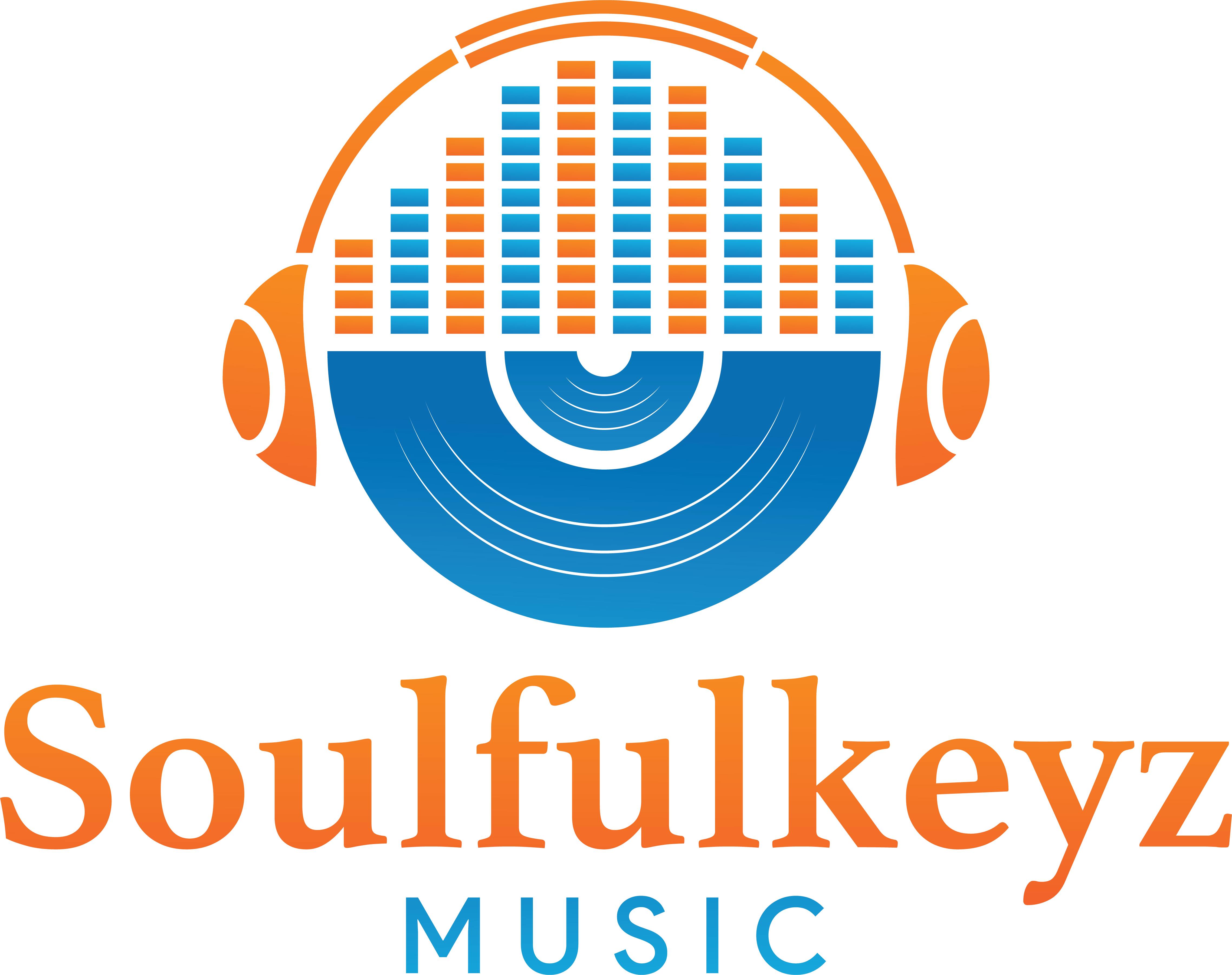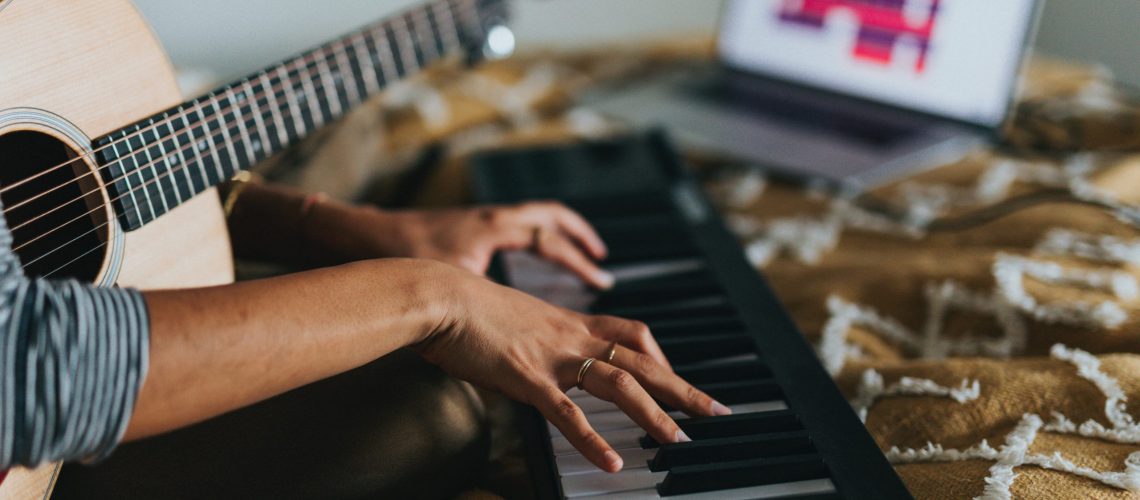I’m sure you’ve heard about Billie Eilish and her brother making Grammy Award Winning music in her bedroom. Is that even possible with a normal person’s budget? Can I do it? How can someone make music that sounds that professional in their home? 🤔
Well, glad you asked!! I will walk you through how it is possible and how it can be done and you won’t break the bank.
You can buy all the state of the art, top of the line, new gear you want but it won’t help! Buying the latest, most expensive, coolest equipment won’t make you sound any better. If you don’t know how to write great songs, sing correctly or use the cheap equipment you already have, getting expensive gear is just going to be a waste of time and money.
Most importantly, it is 100% possible to make professional sounding, high quality music without a pro studio. I did it all the time before I got the gear that I use in now. And most of the stuff I record ends up on albums, commercials and radio.
You really don’t need much to start out with. As long as you educate yourself about your equipment and the standard recording techniques you will be a step further than most people that record in their makeshift studios.
The essentials you need are:
- Computer
- DAW (Digital Audio Workstation)
- Recording Interface
- Mic & Mic Cable & Mic Stand
- Headphones
- Studio Monitors/Speakers (optional)
- Keyboard, Guitar, your instrument etc..(if you’re a musician)
If or when you have those items, you are all set to start recording.
Mic Technique and Position is Better Than EQ

One of the most important things in getting a professional quality sound from your makeshift studio is mic technique. If you get this wrong your song will NOT sound good. Don’t make the mistake of just using EQ to fix bad frequencies. Most times bad frequencies come from a combination of poor mic placement and bad room acoustics. In those situations mic placement is way more effective than using EQ to fix later. Play around with putting the mic in different positions to which position sounds better. If there is too much bass in your vocal recordings you can turn your mic upside down and record with the mic in that position. That will pick up less bass, since its not picking up the low frequencies and air from your lower lip directly, and give you more of a nasal and natural head voice sound instead of the chest voice sound like in the normal mic position. Also, you need to be sure that you are singing or playing directly into the mic but about 6 to 8 inches back away from the mic.
The room acoustics also play a part in how professional a recording is. You want to make sure the room is as quiet as possible, but not dead. A living room or bed room will do just fine. If you want reverb for the style of track you are recording it wouldn’t hurt to record in a hallway or bathroom but keep in mind that you won’t be able to change the level of reverb once recorded.
Recording in empty closets or small closets can cause some extra problems to your recording. Recording in empty or small closets can cause comb filtering in the recording. That just means that some of the signal won’t sound as good and professional as it could because it will have phase issues from the sound waves crossing and mixing up with each other and reaching back to the mic. If your audio is messed up with comb filtering in it you can add distortion or a lot of saturation to the messed up audio and it would disguise the comb filtering a little.
If you use the correct technique you would rarely need to use EQ if at all for most situations.
Recording Levels
I can promise you that one reason your songs don’t sound like the pros is because your recording levels are too hot! Don’t worry most people record way too loud starting out. Your recording level should not be anywhere near peaking, clipping, or nowhere near the red light in the meter. Everyone is recording digitally nowadays so if your signal on your DAW is close to 0dB you are way too hot. Try to keep it somewhere around the middle of the meter, like around -20dB or less. You can always make it louder in Mastering. Just make sure it’s not too low though. So, now that you know about recording levels you are on your way to professional sounding music.
You Don’t Need All Those Plugins
Use very few plugins. We ALL love plugins. I know how easy and tempting it is to just throw a bunch of plugins on a track until it magically starts to come to life and sounds better. Don’t do that. Don’t go buy unnecessary plugins either. Everything that those expensive third party plugins can do can be done with stock plugins in your DAW. Use 3 or 4 plugins you like and get it to sound the way you want with those. Using less plugins will force you to be creative, write better, record better and pay attention overall to what your final goal is…which is essentially to make a hit song.
Study
Study, study study. Always be a student, never stop learning more. There is always more that you can learn. Study the hits in your genre to learn how to write songs similar to the styles they write. Study forms, verses and transitions. Use what you’ve learned to write better songs. Songwriting is almost 90% of making a hit song in your makeshift recording environment.
Don’t be afraid to check out what other artists are doing and recording. Don’t be too hard on yourself but compare how your song and recording sounds to their song. Notice what could be done better on your end as far as recording quality and creative content as well.

